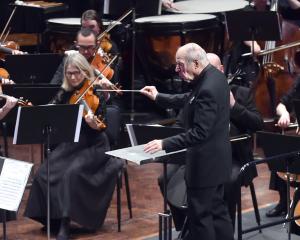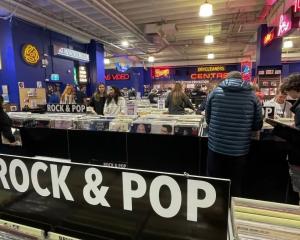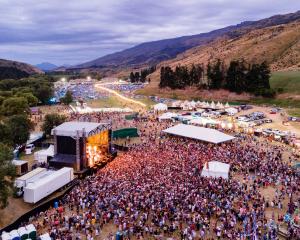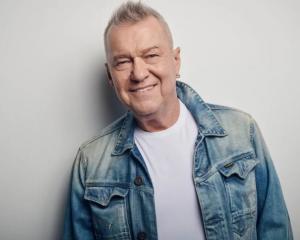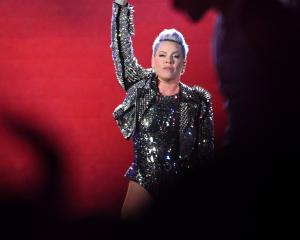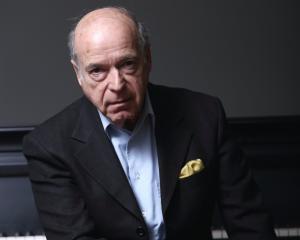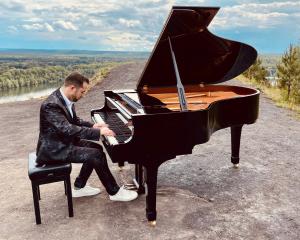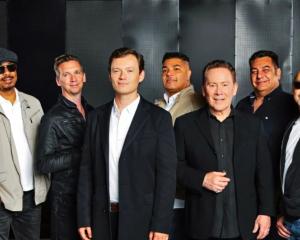Music is a mean mistress for Mike Nock and his trio, he tells Dunedin jazz pianist Bill Martin.
A couple of weeks ago on a Saturday night, music lovers gathered around tables under mood lighting to listen to jazz at the Otago Women's Pioneer Hall. Billed as ''Jazzorama'' by singer and producer Karin Reid, the event featured the contingent of local musicians who will play at the Queenstown Jazz Festival over Labour Weekend.
Guided by the expert ear of artistic director and bassist Craig Sinclair - a Dunedin jazz scene regular - this year's festival has attracted international jazz pianist Mike Nock, as well as bringing together the best talent that New Zealand has to offer, including pianist Steve Barry, saxophonist Roger Manins, drummer Reuben Bradley and singer Jennine Bailey. On Friday, the Mike Nock Trio will headline the first event of the festival's concert series at Queenstown's Memorial Hall.
Q: I remember hearing you play a rollicking version of Duke Ellington's C Jam Blues with alto saxophonist Bernie McGann in Sydney in the early 2000s. In Dunedin, you have given a solo concert at St Paul's Cathedral, transforming the South African national anthem into a surging vamp combining elements of rock, blues and jazz. How do you compare the piano trio combination to these more minimalist formats?
A: The big difference for me is there's more company on stage, which means there's a safety net. Playing solo and to a lesser extent duo, is akin to tightrope walking. If you trip it can be a long way down.
Q: How did you meet Brett Hirst and James Waples, the other members of the Mike Nock Trio?
A: Shortly after meeting Brett as a student at the Sydney Conservatorium of Music, I invited him to join my Young Lions quartet (with saxophonist Matt Ottignon and drummer Chris O'Connor ) for a New Zealand tour. I met James a few years later, also as a conservatorium student, and since that time they have both been integral members of many of my groups.
Q: Why do you like playing at festivals?
A: For the last 20 years I have been playing at the Wangaratta Jazz Festival in Australia and have met and played with so many talented musicians. Like Queenstown, you go there for three days and you can't escape, so it is a great chance to hear what other musicians are doing.
Q: What can the audience expect to hear in Queenstown?
A: A mixture of songs you might recognise, such as Summertime and other jazz standards, along with my own compositions and other songs you've probably not heard before. Whatever the piece, all these tunes are played by a group of long-time friends that enjoy making music together. The important thing though is not what we do, but how we do it.
Q: You grew up as a Kiwi in Nelson and became famous as a jazz pianist in Australia with Three-Out Trio in the early 1960s. You then travelled to Berklee College in Boston to further your knowledge of the instrument and break into the American scene. For many years now you have been a professor of jazz piano at the University of Sydney Conservatorium of Music. What role do you think schools and universities can play in nurturing and developing young jazz artists?
A: I believe the study and performance of jazz has a great contribution to make in today's society. To play this music well one needs to master a wide range of skills that are essential to successfully cope in today's music business.
Q: From 1996 to 2001 you were musical director of the Naxos jazz label and curated the release of more than 70 albums. Do you think it is easy for jazz musicians to make high-quality records these days and still find an audience for the music?
A: Well, it's never been easy to do either of those things, but as jazz musicians we just keep plugging on and have our occasional wins, just like any other profession.
Q: You have played with a number of legendary players over the years, including Yusef Lateef, Michael Brecker, Eddie Gomez and Dave Liebman. How would you rate the scene in Australia and New Zealand at the moment?
A: Actually the scene in Australasia is pretty good and getting better all the time. It's a huge improvement to what it was when I returned from the US in 1985.
Q: Has your playing improved with age?
A: Whether I'm getting better or not my perspective has broadened over the years and I hope the positive aspects come through in my music. Duke Ellington once described music as a mean mistress. I'm still striving and practising daily to keep her happy.
The show: The Mike Nock Trio performs at the Queenstown Memorial Centre on Friday, October 24 at 7pm, supported by Adrian Laird's Charles Mingus Tribute Quintet, featuring Roger Manins and Reuben Bradley.
The Queenstown Jazz Festival runs from October 24-26.

